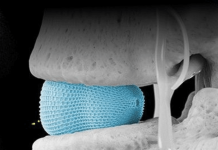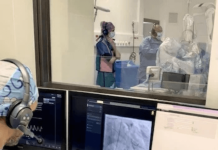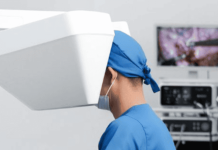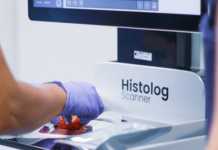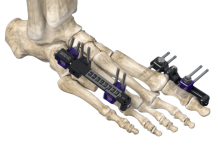Cumulus Neuroscience (Cumulus; The Company), a global digital health company focused on advancing neuroscience clinical trials and patient care through improved data, today announced the completion of patient enrollment for its CNS-101 multi-site study. The real-world study evaluates the feasibility of using repeated sampling of validated digital measures at home in patients with early-stage Alzheimer’s disease (AD), compared with healthy controls, over the course of 12 months. The University of Cambridge and the University of Oxford are lead recruitment sites for the study.
With the goal of assessing people in familiar environments, rather than requiring transport to specialist research facilities for testing, CNS-101 uses the Cumulus dry-sensor EEG (electroencephalogram) headset, combined with the Cumulus digital platform, to measure patients’ cognitive performance and their brain waves during daily life. Study results will be compared with standard assessments normally used in AD clinical trials, including cognitive and blood biomarkers.
“Clinical trials of Alzheimer’s disease and mild cognitive impairment can be challenging for many reasons. Reliance on specialist, centralized test centers increases participant burden and reduces sensitivity to natural day to day variation in symptoms,” said Dr. James Rowe, Professor of Cognitive Neurology at the University of Cambridge and Chief Investigator on CNS-101. “The Cumulus Platform brings the clinical trial to the patient. To measure brain function, repeatedly over time, and in the comfort of a participant’s own home, is a major step forward for a new generation of clinical trials.”
Patient enrollment for CNS studies can be difficult, and compliance limited; last year, across the entire UK, only 61 patients living with Alzheimer’s dementia were recruited into late-stage trials supported by the National Institute for Health and Care Research (NIHR) which coordinates clinical trials across the nation. The collective clinical study sites involved in the Cumulus Neuroscience CNS-101 study were able to fully enroll 59 patients in under one year.
“We’re encouraged to see high patient compliance rates with the at-home study protocol in our interim analysis,” said Brian Murphy, Founder and Chief Scientific Officer, Cumulus Neuroscience. “This engagement is a testament to the commitment of patients and caregivers to advance the understanding of Alzheimer’s disease, and the support they receive from our clinical partners.”
CNS-101 study participants use a tablet to log onto the Cumulus platform app, and perform a variety of tasks measuring working memory, episodic memory, executive function, decision making, language, and mood, while wearing the Cumulus headset which records EEG brain waves. Participants wear a headband at night to record brain waves while they sleep and monitor sleep quality over the course of the study. Data from the headsets and sleep headbands are recorded and uploaded onto the secure Cumulus Platform using anonymized codes, via the participant’s home Wi-fi.
The details of this study are expected to be presented at upcoming medical conferences, with full results expected to be presented in early 2024. For more information, visit www.cumulusneuro.com.
About Cumulus Neuroscience
With a mission to generate the data and insights required to accelerate diagnosis and management of central nervous system (CNS) disorders, Cumulus Neuroscience is advancing an AI-based, multi-domain digital biomarker platform to enable better, faster decision making in neurology and neuropsychiatry clinical trials and patient care. Designed for and with 10 of the world’s leading pharma companies, the platform enables decentralized trials, and is already making a difference in the development of therapies for Alzheimer’s Disease, depression and schizophrenia.
Designed to provide an industry-wide standard for real-world measurement of disease progression, Cumulus combines patented technology, in-house expertise and key industry partnerships to capture large amounts of real-world, clinical data repeated over time, across multiple behavioral and physiological domains in the patient’s home – all with an EEG headset synced to a novel, tablet-based neuro-assessment platform. Together with machine learning (ML) analytics and the world’s largest database of annotated, longitudinal, neurofunctional data, Cumulus simplifies and improves the robustness of neuroscience clinical trials to provide the best and most cost-effective assessment of CNS treatment outcomes.
The Company is supported by highly experienced specialized investors, DDF/SV Health Investors, LifeArc and Future Fund, and a world-class Scientific and Technical Advisory Board.


